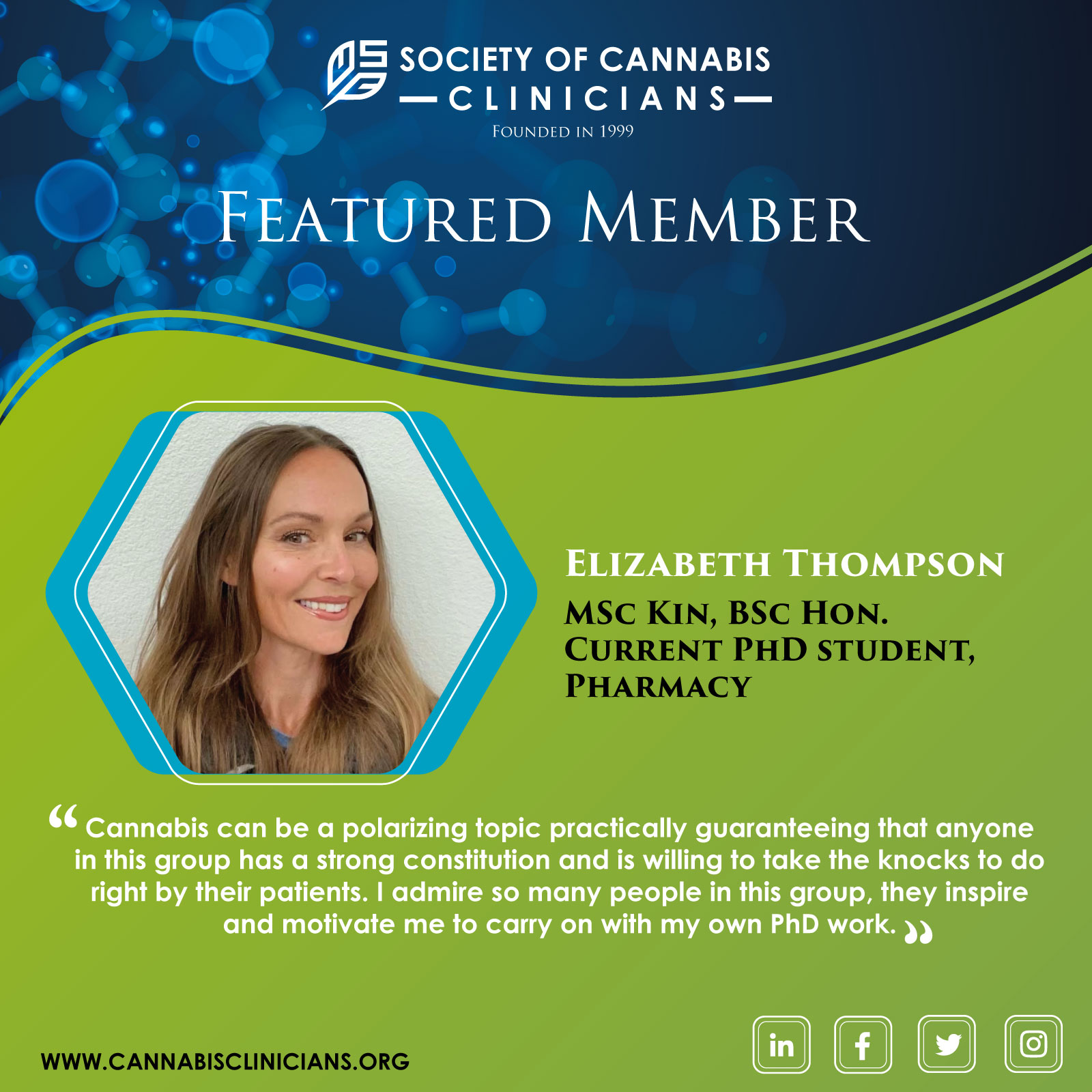Q&As
How/Why did you first become interested in medical cannabis?
Working in health care as a physiologist I was interested in non-pharmaceutical approaches to pathologies. My initial trip down the rabbit hole of endocannabinoid system/ molecular mechanisms was in my search for possible alternatives to opioids or opioid reduction. My husband was a professional athlete in a high contact sport at the apex of opioid prescriptions. Over the years, we have lost several teammates and friends as a result of opioid addiction or overdose. Once I started looking at the endocannabinoid system and how cannabis could potentially function in several areas in sports, there was no turning back!
What is your background in medical cannabis?
I have studied molecular mechanisms for many years and worked privately with individuals looking to incorporate cannabis therapies into their life.
What are you currently working on professionally? Personally?
I am currently in the second year of my PhD in Pharmacy co-supervised at the University of Saskatchewan and the University of Regina in Canada. I saw a call from the NFL that they were putting up $1million dollars for research into cannabis. When I passed it on to my amazing supervisor supervisor Dr. Patrick Neary he assembled an outstanding team (I am a team member) and secured funding from the NFL- NFLPA Pain Management Committee. We were one of two successful applications in this call. The grant involves the investigation of cannabinoids for pain management and neuroprotection from concussion during participation in contact sports. To support the clinical trials that will be conducted as part of the grant, my research will explore the knowledge, attitudes, barriers, etc of Cannabis use in professional athletes, coaches, managers, owners (namely NFL, NHL) and to create educational tools directed towards professional sports athletes, coaches, managers, owners. There is a gap in knowledge in the sports world that I would like to close. They are an under-represented population in research due to the nature of their industry, but could potentially benefit greatly from incorporating cannabis therapies for a variety of things.
What attracted you to the SCC and/or what do you enjoy most about this community?
I have been a member of the SCC for many years. I appreciate all of their high quality educational offerings that focus on clinical applications and have completed almost all of them. The recent 4 part pharmacy course offering was great too. I also love the continual publishing of webinars on current topics or published papers. Above all, the PEOPLE that are part of the membership of SCC are what I enjoy most about this community. They are great people and I have made some great friends. All members are all there for the right reasons and are truly trying to help people. Cannabis can be a polarizing topic practically guaranteeing that anyone in this group has a strong constitution and is willing to take the knocks to do right by their patients. I admire so many people in this group. They inspire and motivate me to carry on with my own PhD work.
What are your hopes for the future of cannabis medicine?
My hope is to catch up all the clinical research time we lost due to prohibition in addition to changing the conversation about the validity of therapeutic cannabis use. There is so much existing stigma, misinformation and bad policies that need to be rectified. The policies that were put in place in 1937, and the people responsible for perpetuating them did much more damage to citizens than the actual plant could ever do. My hopes for the future of cannabis medicine is to right these many wrongs, and see safe cannabis options and education available for the people interested in its benefits .


